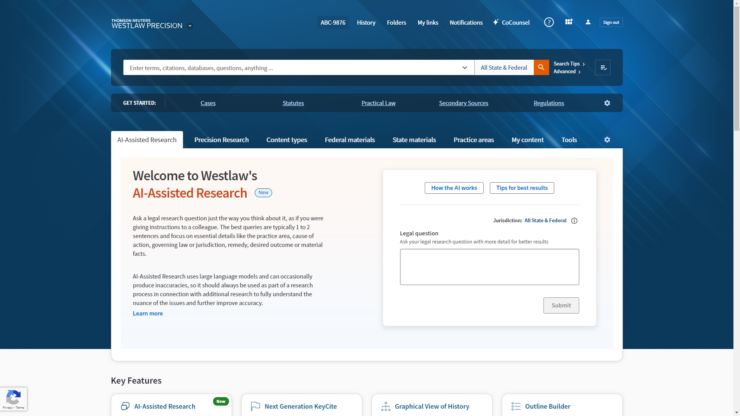Today Thomson Reuters announced the launch of CoCounsel Legal which features both Deep Research and agentic workflows. I attended a recent press briefing where Raghu Ramanathan, president of Legal Professionals, Laura Clayton McDonnnell, President of Corporate Business Rawia Ashraf, Head of Product, CoCounsel Transactional and GCO, and Mike Dahn Head of Product Management Westlaw demonstrated a raft of new capabilities that resets the bar for AI enabled legal workflows.
CoCounsel Legal is designed to “help professionals move beyond prompting and start delegating.” The agentic guided workflows are built TR’s existing AI assistant and enhanced with advanced reasoning models, TR’s deep reservoir of Westlaw and Practical Law legal content and an army of domain experts at TR. “ CoCounsel Legal is a next-generation AI product that brings together legal research, essential workflow automation, intelligent document search and AI-powered legal assistance within one unified enterprise wide solution.”
At launch Co Counsel Legal offers workflows for transactional, litigation and regulatory analysis. The headliner here is that TR is building a single workflow that allows lawyers to transition seamlessly through an entire project without the interruption launching new applications and products. And the product responds like a an intelligent teammate that an attorney can interact with. The attorney gives assignments and the agent gives feedback, guidance and results.
What Does This Relaunch of CoCounsel Legal Mean for Subscribers?Continue Reading Co Counsel Legal with Agentic AI and Deep Research: Is It a Tool or Is it a Teammate?



